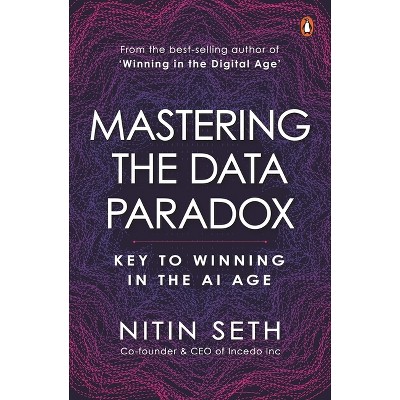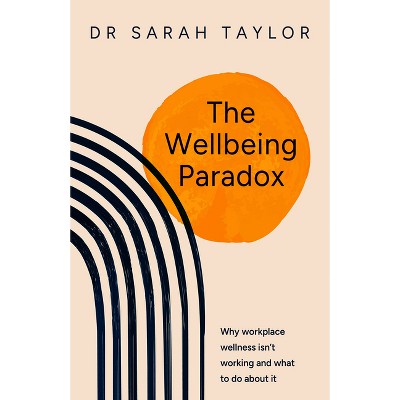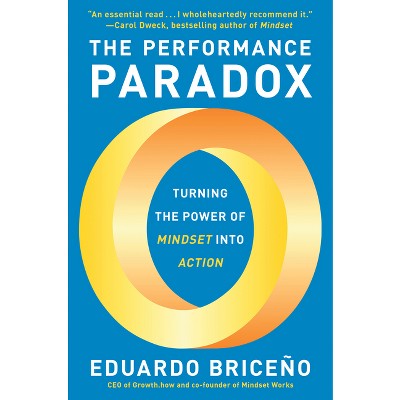Sponsored

The Pandemic Paradox - by Scott Fulford (Hardcover)
$19.69Save $15.31 (44% off)
In Stock
Eligible for registries and wish lists
Sponsored
About this item
Highlights
- Why most Americans' finances improved during the worst economic contraction since the Great Depression--and the policy choices that made this possible In March 2020, economic and social life across the United States came to an abrupt halt as the country tried to slow the spread of COVID-19.
- About the Author: Scott Fulford is a senior economist at the Consumer Financial Protection Bureau.
- 392 Pages
- Business + Money Management, Finance
Description
About the Book
"In March 2020, economic and social life across the United States came to an abrupt halt as the country tried to slow the spread of COVID-19. In the worst economic contraction since the Great Depression, twenty-two million people lost their jobs between mid-March and mid-April of 2020. And yet somehow the finances of most Americans improved during the pandemic--savings went up, debts went down, and fewer people had trouble paying their bills. In The Pandemic Paradox, economist Scott Fulford explains this seeming contradiction, describing how the pandemic reshaped the American economy. As Americans grappled with remote work, "essential" work, and closed schools, three massive pandemic relief bills, starting with the CARES Act on March 27, 2020, managed to protect many of America's most vulnerable. Fulford draws from the Consumer Financial Protection Bureau's "Making Ends Meet" surveys--which he helped design--to interweave macroeconomic trends in spending, saving, and debt with stories of individual Americans' economic lives during the pandemic. We meet Winona, who quit her job to take care of her children; Marvin, who retired early and worried that his savings wouldn't last; Lisa, whose expenses went up after her grown kids (and their dog) moved back home; and many others. What the statistics and the stories show, Fulford argues, is that a better, fairer, more productive economy is still possible. The success of pandemic relief policy proves that Americans' economic fragility is not an unsolvable problem. But we have to choose to solve it."--Amazon.com.Book Synopsis
Why most Americans' finances improved during the worst economic contraction since the Great Depression--and the policy choices that made this possible
In March 2020, economic and social life across the United States came to an abrupt halt as the country tried to slow the spread of COVID-19. In the worst economic contraction since the Great Depression, twenty-two million people lost their jobs between mid-March and mid-April of 2020. And yet somehow the finances of most Americans improved during the pandemic--savings went up, debts went down, and fewer people had trouble paying their bills. In The Pandemic Paradox, economist Scott Fulford explains this seeming contradiction, describing how the pandemic reshaped the American economy. As Americans grappled with remote work, "essential" work, and closed schools, three massive pandemic relief bills, starting with the CARES Act on March 27, 2020, managed to protect many of America's most vulnerable. Fulford draws from the Consumer Financial Protection Bureau's "Making Ends Meet" surveys--which he helped design--to interweave macroeconomic trends in spending, saving, and debt with stories of individual Americans' economic lives during the pandemic. We meet Winona, who quit her job to take care of her children; Marvin, who retired early and worried that his savings wouldn't last; Lisa, whose expenses went up after her grown kids (and their dog) moved back home; and many others. What the statistics and the stories show, Fulford argues, is that a better, fairer, more productive economy is still possible. The success of pandemic relief policy proves that Americans' economic fragility is not an unsolvable problem. But we have to choose to solve it.Review Quotes
"'The Pandemic Paradox' compellingly argues that federal largess lessened the immediate financial pain of Covid-19. Yet Mr. Fulford is unlikely to change the minds of readers who think that America overspent. If you start with some skepticism about the trillions of dollars in pandemic spending, this book will not eliminate your skepticism. But it will provide you with a thoughtful, panoramic view of the economic changes that occurred after 2020."---Edward Glaeser, Wall Street Journal
"Recommended."-- "Choice"
"The pandemic has wrapped up and we are getting books that are auditing our policy response. . . . Scott Fulford's The Pandemic Paradox . . . stuck with me. What we did to reduce poverty was really something, and it's deeply moving to see all the good we did. Then we let it all go."---Matthew Desmond, Boston Globe
"The good news: The pandemic took less of a toll on the economy than it might have. The bad news, and thus the paradox of the title: The economic damage will last. As Fulford shows in clear and accessible prose, the world as a whole was unprepared for a devastating pandemic. . . . If you're wondering about the dollars-and-cents effects of the virus, this book makes a lucid guide."-- "Kirkus Reviews"
About the Author
Scott Fulford is a senior economist at the Consumer Financial Protection Bureau. He has a PhD in economics from Princeton University and he taught economic and international studies at Boston College before joining the CFPB. His academic and policy research examines the economic problems individuals and households face and how they use financial products to help deal with them. He lives in Washington, DC, with his wife and two young children.Dimensions (Overall): 9.3 Inches (H) x 6.2 Inches (W) x 1.5 Inches (D)
Weight: 1.7 Pounds
Suggested Age: 22 Years and Up
Number of Pages: 392
Genre: Business + Money Management
Sub-Genre: Finance
Publisher: Princeton University Press
Format: Hardcover
Author: Scott Fulford
Language: English
Street Date: May 16, 2023
TCIN: 87814877
UPC: 9780691245324
Item Number (DPCI): 247-22-3850
Origin: Made in the USA or Imported
If the item details aren’t accurate or complete, we want to know about it.
Shipping details
Estimated ship dimensions: 1.5 inches length x 6.2 inches width x 9.3 inches height
Estimated ship weight: 1.7 pounds
We regret that this item cannot be shipped to PO Boxes.
This item cannot be shipped to the following locations: American Samoa (see also separate entry under AS), Guam (see also separate entry under GU), Northern Mariana Islands, Puerto Rico (see also separate entry under PR), United States Minor Outlying Islands, Virgin Islands, U.S., APO/FPO
Return details
This item can be returned to any Target store or Target.com.
This item must be returned within 90 days of the date it was purchased in store, shipped, delivered by a Shipt shopper, or made ready for pickup.
See the return policy for complete information.











